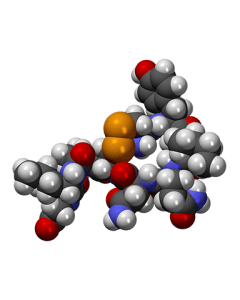Surviving a cancer diagnosis and the treatment that follows requires overcoming significant emotional and physical hurdles. Even after a patient is cancer-free, he or she often continues to struggle with depression and anxiety from fear of cancer recurrence, and many also suffer from sleep disturbances. These ongoing challenges negatively impact well-being and quality of life, hindering a patient’s ability to fully flourish. Might contemplative practices help cancer survivors deal better with their mental and physical challenges to remain cancer free? In a recent study published in Integrative Cancer Therapies, Varela grantee David Lipschitz, MLI Fellow Yoshio Nakamura and colleagues at the University of Utah investigated the effects of two mind-body interventions on a number of physiological and psychological health outcomes in cancer survivors. This study used a strong experimental design, comparing three similar interventions to which participants were randomly assigned: mind-body bridging, mindfulness meditation, and a sleep education group as an active control. Below, David Lipschitz summarizes his Varela research project and its findings.
— Wendy Hasenkamp, Senior Scientific Officer
Mind–Body Interventions Affect Sleep and Oxytocin in Cancer Survivors
by David L. Lipschitz, PhD

Oxytocin is a hormone produced in an area of the brain known as the hypothalamus, whose release activates a variety of brain regions resulting in many different functions, including birth (labor), breast feeding (lactation), maternal behavior, parental care, social bonding, affiliation (such as couples being together), and well-being. In recent studies in humans, oxytocin has been shown to be associated with increases in prosocial behaviors such as trust, altruism, generosity, cooperation and empathy. These various functions suggest that oxytocin may promote health by reducing stress and increasing calm/relaxed states, resulting in improved quality of life and well-being.
Given oxytocin’s stress-reducing and calming properties, and its capacity to increase well-being, its action may be relevant to those fighting cancer. We conducted a study to look at the effects of two mind-body therapies on changes in salivary oxytocin levels in a cancer survivor population with self-reported sleep disturbance. Investigating oxytocin in cancer survivors could be important, given cancer survivors’ high levels of distress, depression, and anxiety, as well as poor sleep, possibly due to the effects of cancer treatment and worries about cancer recurrence. In our study, we hypothesized that the mind-body therapies would increase oxytocin levels, which would be associated with improvements in sleep, increases in quality of life and well-being, and reduced stress.
The two sleep-focused mind–body interventions included mind–body bridging and mindfulness meditation, which were compared with a sleep hygiene education control program. Cancer survivors needed to be three months post-treatment (completed radiation, chemotherapy and/or surgery) to qualify for the study. Participants were randomly assigned to one of the three groups, each of which ended up having about 20 people. Before and after the interventions, we collected a number of validated self-report questionnaires (measuring sleep, depression, perceived stress, cancer-related quality of life, well-being, mindfulness, and self-compassion); we also collected saliva samples for oxytocin assessment from about 10 participants in each group. Each intervention was run over three sessions, once per week for three consecutive weeks. Saliva samples and the self-report measures were collected before the groups started (baseline), about one week after the final session (post-intervention), and at a two-month follow-up.
Overall, oxytocin levels did not differ between females and males and were not correlated with age. There were some indications in the baseline samples that oxytocin was negatively associated with sleep problems and depression (e.g., with less oxytocin, more sleep problems and depression were reported) and positively associated with cancer-related quality of life and well-being (e.g., with more oxytocin, greater quality of life and well-being were seen).
Regarding the effects of the mind-body therapies, after controlling for baseline differences among groups, post-treatment oxytocin levels were significantly higher in the mind–body bridging group as compared with those in the control group. For the self-reports, those in the mind–body bridging and mindfulness meditation groups showed greater reductions in sleep problems compared to controls, and in the mind–body bridging group, mindfulness and self-compassion increased to a greater extent than in controls.
These findings suggest that mind-body interventions may be particularly beneficial for cancer survivors to improve sleep and increase adaptive mental states. In addition, salivary oxytocin may be a reliable biological measure to assess the effects of mind–body therapies on health outcomes. More research is needed to further investigate the relationships between oxytocin and improved mental and physical health, but this work provides early evidence that increasing oxytocin levels using mind-body interventions might be one way of helping cancer survivors improve their chances of feeling better, by reducing their stress and anxiety levels—and in so doing, improving their chances of remaining cancer-free.
Click here for a full version of the manuscript.

David Lipschitz, PhD is a Research Associate in the Pain Research Center, Dept. Anesthesiology, University of Utah, where he is involved in conducting research examining the effects of mind-body interventions on clinical outcomes such as sleep, pain, and PTSD, and biomarkers such as oxytocin, cortisol and alpha-amylase.

